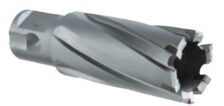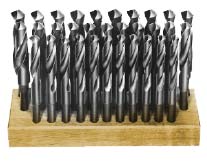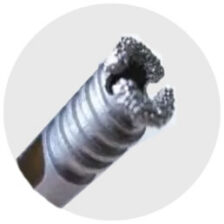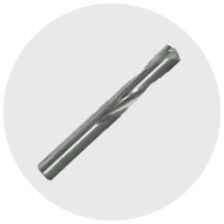
The aerospace industry, known for its stringent standards and advanced materials, utilizes a specific array of drill bits designed for precision, durability, and performance under challenging conditions. Here’s a detailed overview:
Carbide Drill Bits
- Purpose: Precision drilling in hard materials.
- Use: Essential for drilling through tough alloys and composites used in aircraft manufacturing.
- Feature: Extremely hard, maintaining sharpness under high-speed operations and high temperatures.
Cobalt Drill Bits
- Purpose: Drill through hard metals like stainless steel and superalloys.
- Use: Ideal for components that require high heat resistance and strength.
- Feature: Made of cobalt alloy, offering exceptional strength and heat resistance.
Diamond-Coated Drill Bits
- Purpose: Drill through very hard materials and composites.
- Use: Used for precise drilling in advanced composites and hardened alloys.
- Feature: Coated with fine diamonds, providing unparalleled hardness and wear resistance.
Peck Drill Bits
- Purpose: Deep hole drilling.
- Use: Ideal for drilling deep holes with high aspect ratios in aerospace components.
- Feature: Designed to drill in short pecks, allowing for chip removal and reduced heat buildup.
Threaded Shank Drill Bits
- Purpose: Provide secure attachment in high-speed drilling operations.
- Use: Common in the assembly of airframes and engines, where precision and secure attachment are critical.
- Feature: Threaded shank for secure attachment in quick-change tool holders.
Countersink Drill Bits
- Purpose: Create a conical hole for flush-mounting fasteners.
- Use: Essential for aerodynamic surfaces and structural components.
- Feature: Designed to create a precise taper for rivets and screws.
Oil Hole Drill Bits
- Purpose: For drilling in areas requiring constant lubrication.
- Use: Used in high-friction, high-heat applications, typical in aerospace manufacturing.
- Feature: Internal channels for cutting fluid to flow through during drilling.
Each drill bit type used in the aerospace industry is specifically chosen to match the high-performance requirements of aircraft manufacturing and maintenance. They are engineered to handle advanced materials, including alloys and composites, ensuring precision and reliability in this high-tech field.








